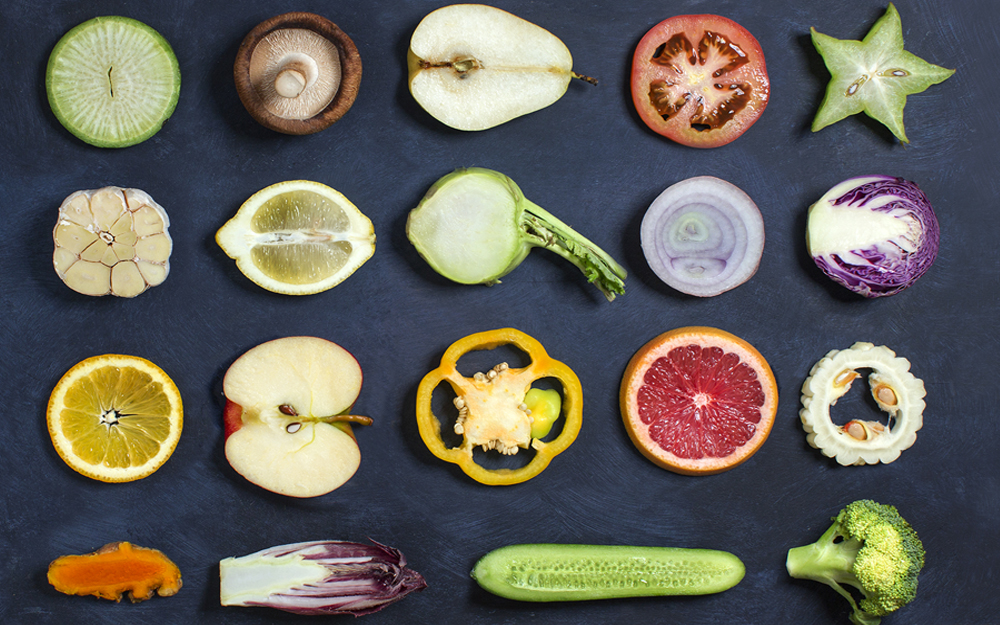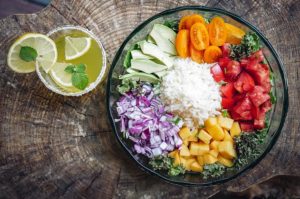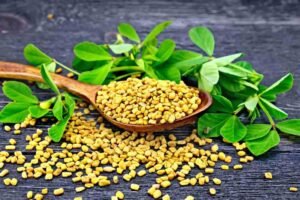Introduction
Taking on a vegetarian diet can be an excellent way to stay healthy and happy. A vegetarian diet is an entire diet. It includes high consumption of fiber, vitamins C and E, iron, and less fat. Besides, vegetarians have lower cholesterol, low blood pressure, and less risk of heart diseases.
Besides, vegetarian food is simple for the body to digest. It takes less time to cook and is healthy. Moreover, it saves you money. Vegetables are essential not only just for our health but also the environment.
Benefits of a Vegetarian Diet
Increases lifetime
Many causes contribute to a long lifetime, and taking up a vegetarian diet is one. In the long run, the more you eat fruits or vegetables, the more you avoid toxins and chemicals. They are thus easing healthier years and longer life. CBD gummies from https://cbdvapejuice.net/product-category/cbd-by-type/cbd-edibles/ are aromatic and fun to eat.
Lower Cholesterol Levels
Believe it or not, there are no health benefits to consuming animal fat. Above all, cholesterol comes from animal food products, and vegetarian diets are low in fats. We all eat junk food, which is tasty but bad for our health.
Avoid Obesity
When we go to the grocery store, they are full of junk food. We live a busy life, and we have no time to cook. After all, junk food is easy to cook. We buy frozen food and, after a hard day, come home and microwave the frozen food. These easy to cook food are causing obesity. Likewise, eating less junk food will make us healthy and reduce the risk of heart diseases.
Reduces Risk of Diabetes
Non-vegetarian diets are full of sugar. Also, eating animal food products raises our blood sugar level. Eating a vegetarian diet will keep our blood sugar level at a low level. Moreover, all the fast-food restaurants are selling food that is high in cholesterol and easy to consume.
Gives Healthy Skin
For healthy glowing skin, we need nutrients such as vitamins and minerals. We should keep ourselves hydrated and drink plenty of water. At the most, we must drink 12 to 13 glasses of water every day.
Fruits and vegetables are all rich in vitamins and minerals. They contain antioxidants. Moreover, fruits and vegetables are water-based, which is very good for our skin.
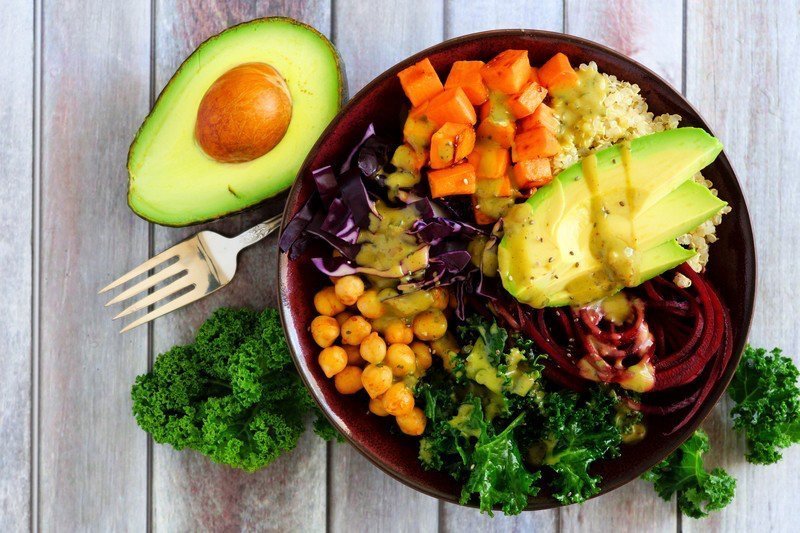
High Fiber Content.
Fiber is good for our body because it helps indigestion. It improves body metabolism and the fast elimination of toxins and other chemicals from the body.
Eating a lot of vegetables means eating more fiber. Fiber drives waste out of the body. Meat has no thread. Thus, people who eat vegetarian food tend to have fewer cases of constipation and hemorrhoids.
Can Reduce Depression
Vegetarian recipe diets contain fresh products. They give energy to our body. More oxygen means more energy flowing through our veins. Organic food is better than fast food. It is healthier and nutritious. In short, it cleanses our minds and helps to build positive thoughts.
Reduces the Risk of Cataract
People who are on a non-vegetarian diet are at a higher risk of developing cataracts. Meat products raise the risk of eye-related diseases.
Lowers Blood Pressure
Research indicates that vegetarians have lower blood pressures than meat-eating people.
Decreases Asthma Symptoms
A vegetable diet has decreased symptoms of asthma. Certain animal foods produce an allergy. Indeed, reducing animal foods from the diet can mitigate these responses.
Promotes Bone Health
Bones diseases are lower in people who eat vegetarian diets. Animal products remove calcium from the body, creating bone loss and osteoporosis.
Vegetarian Diet is Economical
Non-vegetarian food items are more expensive as compared to vegetarian food. Fresh salads and food cooked from home garden vegetables are healthier and easy to cook. Fish and meat are more expensive.
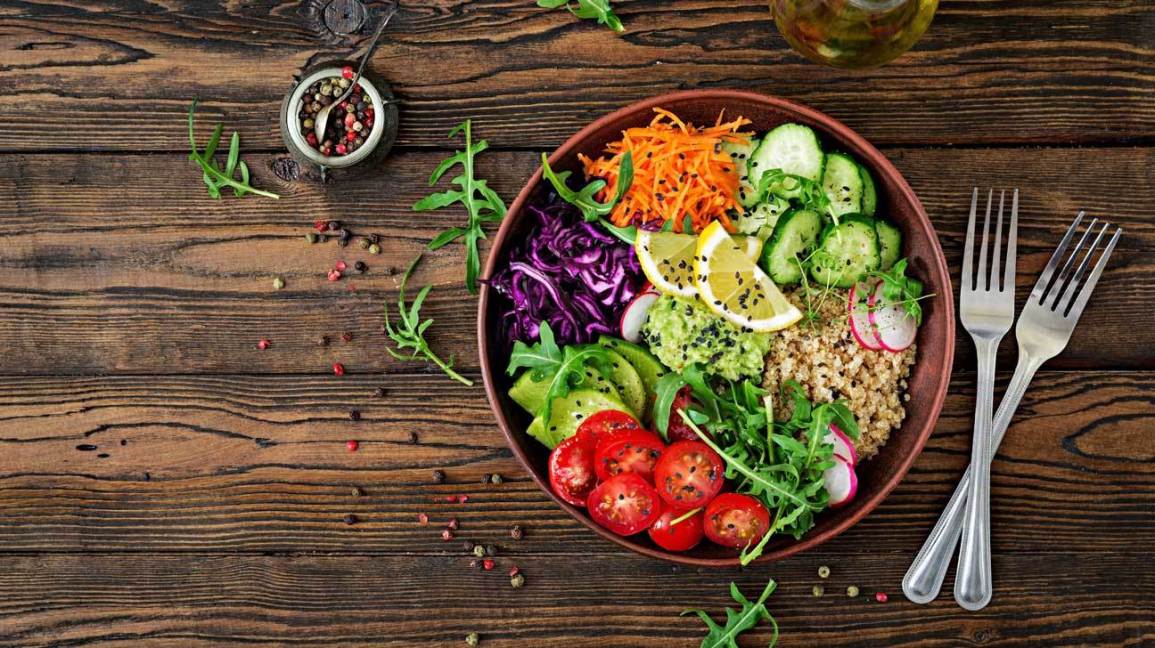
Vegetarian Food we must Eat
- Beans
- Nuts
- Lentils
- Leafy vegetables
- Soy products
- Whole cereals
Vegetarianism and the Environment
Some people become vegetarians after understanding the damage that the meat industry is having on our environment. Chemical and animal waste pollute our rivers.
Conclusion
- Take a variety of fruit and vegetables every day (see 5 A Day)
- Consume higher fiber starchy foods like potatoes, bread, rice, or pasta
- Some milk or dairy alternatives such as soya products
- Eat some beans, pulses, eggs, and other protein
- Select unsaturated oils and spreads, and eat them in fewer amounts
- drink plenty of water and juices
Eating a balanced diet is healthy. We must do our utmost to include organic food or diet. We live in a busy world. Everyone is busy with their daily job, and social media takes a lot of our time. Cooking meals at home has become a thing of the past.
Junk food outlets and restaurants are blooming like mushrooms. Fast food products have replaced many of the healthy options. Children are fond of eating junk food and prefer to eat home-cooked meals.
The vegetarian concept of eating has become popular. The vegetable diet has its benefits and disadvantages also. Organic food is cruelty-free and perfect for our health.
Vegetarian food helps us to keep ourselves slim and fit. A vegetarian diet is made up of fresh vegetables, which all contain vitamins and minerals. In particular, vegetarians avoid eating meat, which leads to inadequate intake of proteins.
Hence we must try to maintain a balanced diet. We are keeping in mind the limited resources of our planet earth.
